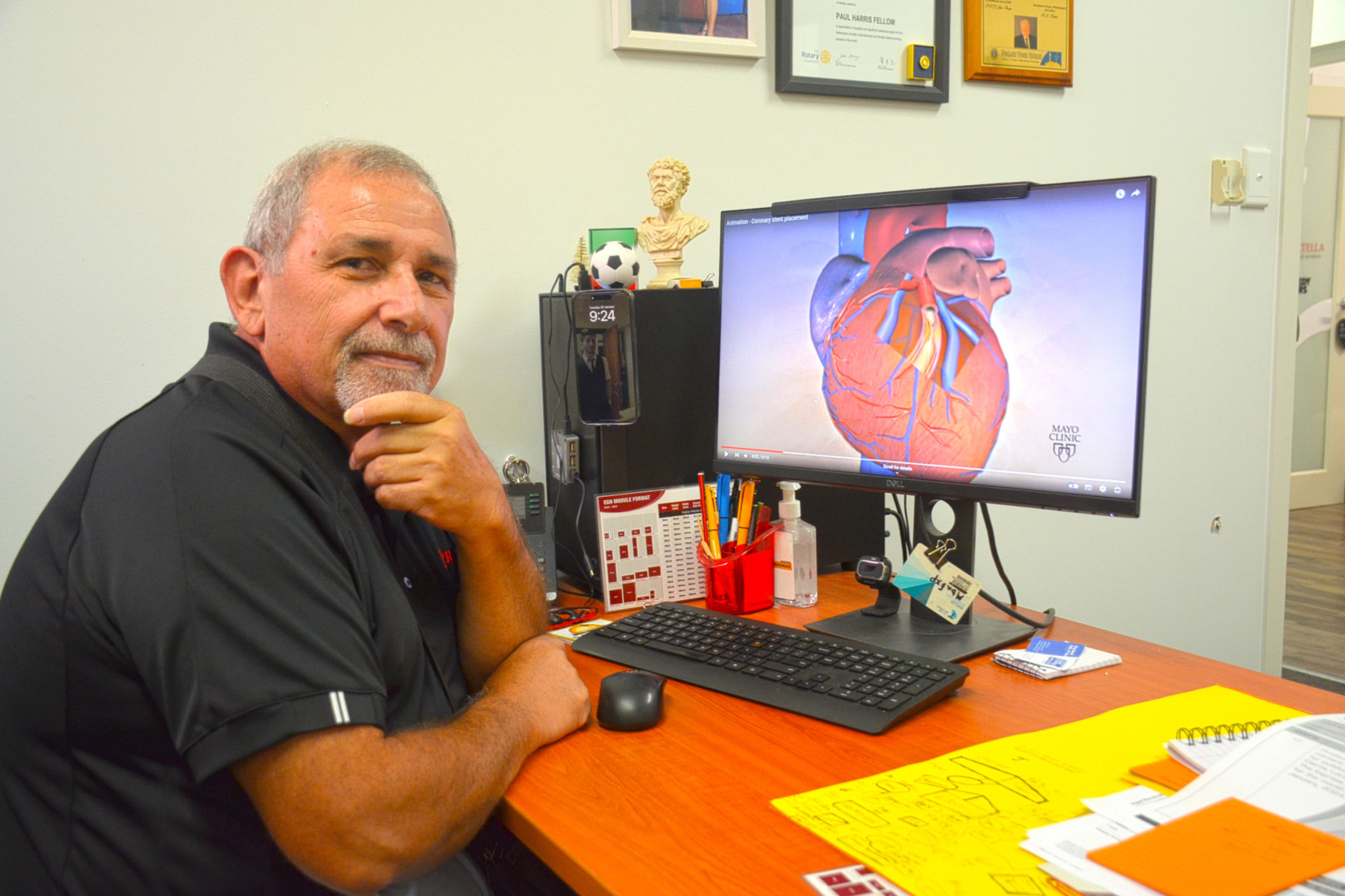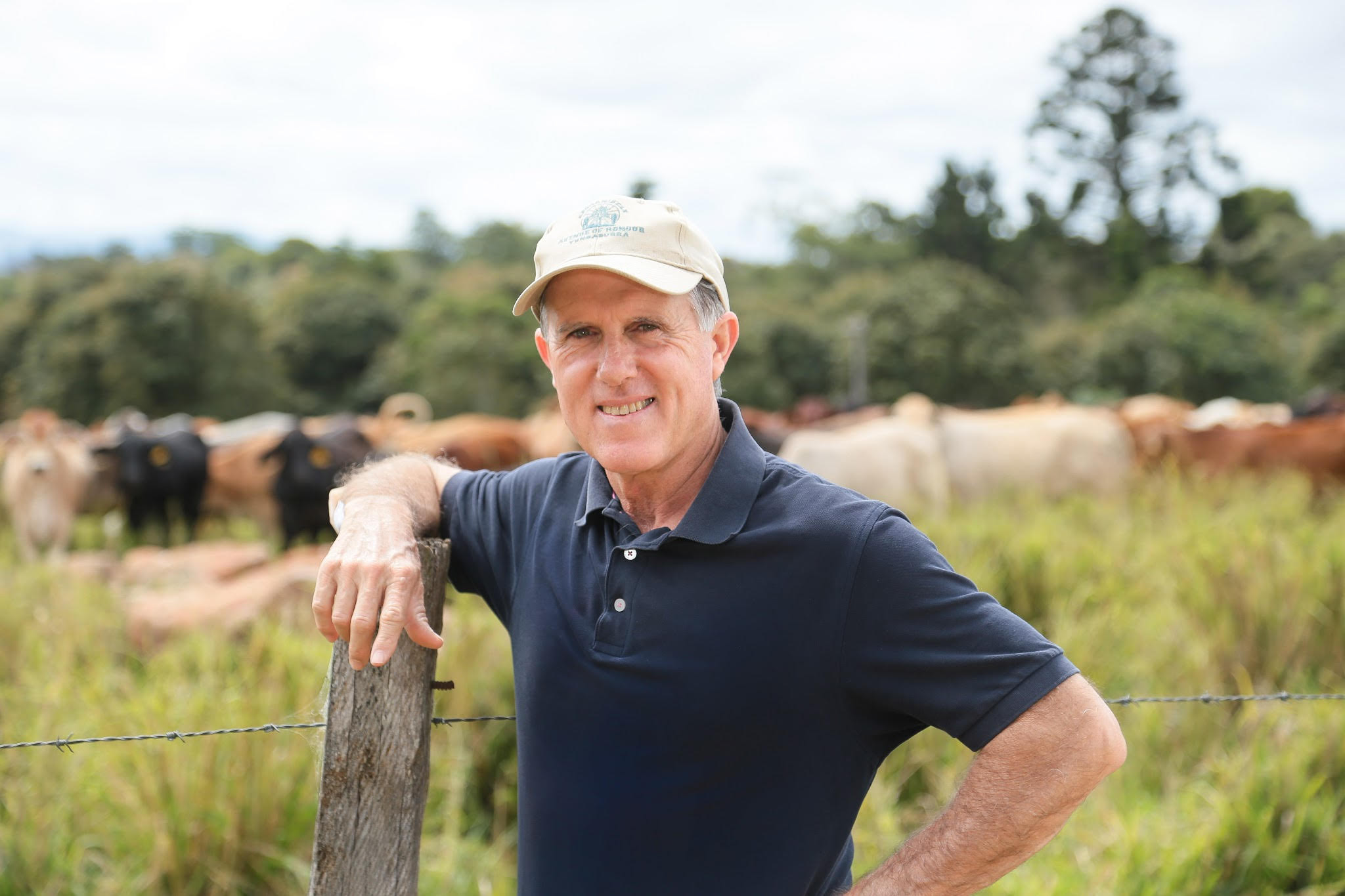Community & Business
10 February, 2024
Local men wear hearts on sleeves this February
HEART health is in the spotlight this month as part of the “REDFEB” campaign, and two well-known local men have opened up about their experiences undergoing open heart surgery in a bid to raise awareness about the importance of keeping the critical organ healthy.

Recent statistics have shown heart disease is the single biggest killer in Australia, and Heart Research Australia’s REDFEB dedicates February to raising awareness on heart health to reduce the death rate.
With heart-related problems increasing, The Express managing director Carl Portella and Tablelands Regional Council Mayor Rod Marti say now is the time to see your GP and get your heart checked.
Only five years ago, Carl suffered a heart attack while working in his backyard.
“I didn’t really notice anything at first - I was just out working in the garden and had a mild pain and felt tired like I needed to sit down,” he said.
“It wasn’t like ‘ahh, I am having a heart attack’, so to speak. I didn’t even know it was happening, I just thought it was because of the heavy workload.”
Loading his trailer up to do a dump run, Carl’s wife insisted he visited the Mareeba Hospital on his way there.
Before he knew it, he was being helicoptered down to Cairns Hospital for a heart attack and within a few hours, he was in surgery, having stents implanted into his heart.
Since then, he has regularly visited his heart specialist to check in on his heart and a few months ago, during one of the checkups, his specialist noticed something wrong with his heart valves.
“Over the five-year period (after the heart attack), there was some deterioration of some of the valves that they (the specialists) were concerned about,” he said.
“That brought us to the conclusion that I should have the valves fixed now while I am young and fit as opposed to when I am in my 80s or 90s.”
On Monday, Carl underwent open heart surgery in Brisbane to have the deteriorating valves removed and replaced with new ones.
In the lead-up, he had many things to consider such as what kind of valves he would like placed in his body.
“There were two options as to what sort of valve they could replace the old ones with – a metal one or a cow valve.
“They both have their pros and cons. With the steel one, you have to be on Warfarin (a blood-thinning medication used to prevent blood clots) for the rest of my life, and the cow valve wears out throughout your life.”
For Rod, his heart condition was discovered in December 2020, when he started experiencing odd pain that he mistook as “just getting old”.
As he went about his daily chores, Rod began to struggle, losing his breath quickly every time he got up to do something.
He went and visited his GP, who diagnosed him with a leaky valve.
“I had a leaking heart valve (mitral valve), which basically meant the blood was going backwards,” he said.
“By the time I was diagnosed, the valve had completely failed.
“I was shocked when I went to the heart specialist, and he showed me the imagery of the blood going backwards. When he organised open heart surgery in just over two weeks from that visit, my life was spinning.”
During his surgery, Rod had his mitral valve, which is located in the upper left and lower left heart chambers, repaired, had minor maintenance conducted on the other valve and had a hole in his heart he had since birth fixed.

Today, Rod says his heart is as healthy as ever, and he is thankful he can continue doing the things he loves without feeling out of breath or run down.
Both Carl and Rod say being cautious with your health is important, especially when it comes to your heart.
“I was extremely lucky that I didn’t have a heart attack/failure given its mechanical dysfunction - it could easily have been catastrophic,” Rod said.
“The learning is that we need to be attuned to our bodies and recognise early symptoms. It’s easy to say ‘well, I’m getting older, and I need to deal with it’. I’m certainly one of the lucky ones.”
They both encourage people to check in with their GP if they are feeling unwell because if it’s left too late, people’s lives could be in danger.
“It really pays to see your GP at least once a year and to go through a physical,” Carl said.
“Let them know your concerns, whether you have dizzy spells or you might feel a bit on and off, the things you can pick up on.
“Get the tests done, whether that is blood tests or whatever, because they can usually pick up on these sorts of things.”
Facts & Stats
♣ Heart disease is the single biggest cause of Australian deaths
♣ Heart Disease kills 51 Australians every day
♣ Heart disease kills one Australian every 30 minutes
♣ 1 million Australians are currently affected by heart disease
♣ Heart Disease is more common in males than females (4.9% compared to 3.1%)
♣ Hear Disease prevalence increases with age affects nearly a quarter of people aged 75 and over vs 2.3% of people aged 45-54
♣ 1 in 3 people aged 18 and over have high blood pressure
♣ Prevalence of high blood pressure increases with age, almost four out of 5 adults have hypertension by 75 years of age
♣ 35% of the burden of cardiovascular disease was due to high blood pressure
♣ 157 people are admitted to hospital every day because of a heart attack
♣ Every 10 minutes, an Australian suffers a heart attack
♣ Indigenous Australians had cardiovascular disease hospitalisation and death rates that were over 50% higher than non-indigenous Australians


